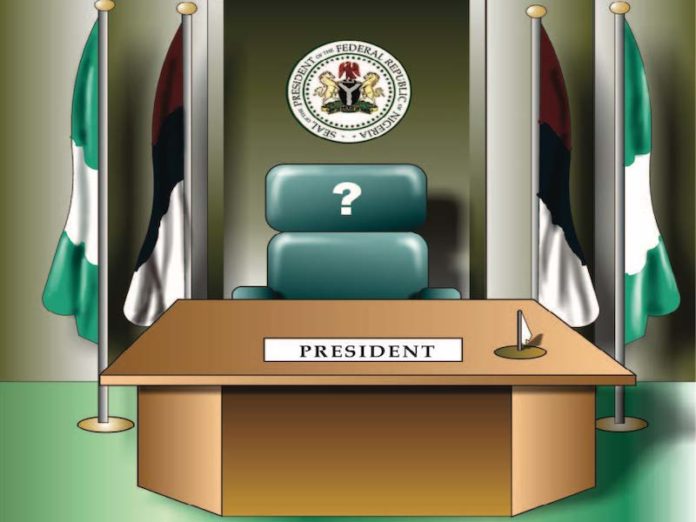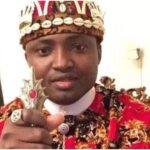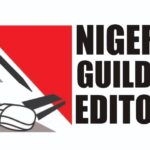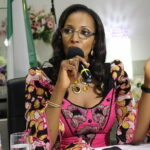One of the prominent issues making the waves in the run-up to the 2023 elections is the demand that the presidency of the country be reserved exclusively for candidates from the Igbo- speaking South East of Nigeria. This demand comes not just from the Igbo alone but also from others outside the Igbo ethnicity.
The argument in support of this is that of the three major ethnic groups in the country; Hausa/Fulani, Yoruba and Igbo who claim not to have ‘’tasted’’ the power of the position. The argument goes further to say that since independence in 1960, there has not been an elected president of Nigeria from the ethnic group. In the present democratic dispensation, which commenced from 1999, there have so far been presidents from other ethnic groups from the southern part of the country, but not from the Igbo. And in 2023 with sentiments riding high for a power shift to the southern part of the country following President Buhari’s eight-year tenure, the position should go to the South East without question.
And to ensure the effective implementation of this imperative, the two major political parties, the ruling All Progressives Congress (APC) and the opposition People’s Democratic Party (PDP) should without any reservation declare that only candidates from the South East will be allowed to run for the presidential election in 2023.
But against the background of current realities in the Nigerian polity, how practicable is this proposition?
It is without doubt a perfectly legitimate and germane demand which is in tandem with the tenets of democratic practice where ideas are allowed to be ventilated by groups in pursuit of worthy causes. And indeed what the Igbo are demanding is not something new or strange to the Nigerian political experience. Other ethnic or geo-political groups have made such demands before and have had their wish granted with the presidency in the country at opportune times in political arrangements that favoured and facilitated the desired outcome.
In this regard, we may recall that at the beginning of the current democratic dispensation in 1999, the then military rulers, who midwifed the process, contrived a political transition programme that favoured the eventual emergence of a Yoruba man from the South West as president of the country. This as we know was to ‘’compensate” the South West for the infamous June 12 debacle in which Chief MKO Abiola from the zone, having clearly won the June 12, 1993 presidential elections, had his presumed victory annulled by the military rulers. And predictably this plunged the country into a prolonged political impasse which was only resolved in 1999 with the emergence of Olusegun Obasanjo as president in political ‘’compensation’’ for the June 12 annulment.
Similarly, following persistent agitations in the Niger Delta part of the country from where the bulk of the nation’s oil revenues are sourced and which suffers from massive environmental issues as a result of exploration activities, it became urgently imperative to work out a political arrangement whereby the region will be ‘’compensated’’ with the presidency in order, as they say in our political parlance, ‘’to have a sense of belonging’’. Goodluck Jonathan from the sub-Ijaw Ogbia clan was tapped and put on the vantage position of vice president to President Yar’Adua who succeeded President Obasanjo, for this purpose. And with the demise of President Yar’Adua, Goodluck Jonathan was the shoo-in to succeed the former, thereby fulfilling the quest by the Niger Delta for a president of Nigeria from the region.
It has also been mentioned that the ascendancy of President Buhari in 2015 was on the back of demands for power to shift to the North which was abruptly terminated when President Yar’Adua passed on. In the background to the strident demands by the northern political elite for power shift was the Boko Haram insurgency which some political observers cited as the militant expression of this demand.
The key issue to note in these political developments is that in a relatively young democratic clime as ours, demands of this nature and tenor constitute the negotiating template by the political elite for power sharing. They can neither be wished away nor even be stopped. We should consider them as a yearning for political inclusion which a budding democracy like ours must necessarily accommodate in order to expand the scope of political engagements in such a plural society, thereby enhancing our political development.
The flip side of this however is the recourse to violence which often accompanies the political agitations with a tendency towards seeking the dismemberment of the country. In the case of the June 12 debacle at the background of it were the Odua agitations aiming to pull the South West out of Nigeria. For the Niger Delta, it was about a campaign of disruptions of oil extraction and exportation operations and the threat to declare a Niger Delta Republic. And in a similar vein, the Boko Haram terrorist insurgency, which raged ferociously, was aimed at declaring an Islamic theocratic state out of Nigeria.
It is in this context that we can properly situate and assess the on-going demands for a president of Nigeria of Igbo extraction from the South East. This will hopefully provide us with a penetrating view into the dimensions of the agitation and help us close the numerous gaps in our current understanding of it. (To be continued)

 Join Daily Trust WhatsApp Community For Quick Access To News and Happenings Around You.
Join Daily Trust WhatsApp Community For Quick Access To News and Happenings Around You.


